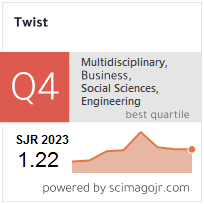Implementation of Teacher Metacognition Improves the Quality of Christian Religious Education in Colleges
Keywords:
Metacognition, Christian, Learning, Guidance, MotivationAbstract
This study assesses the implementation of teacher metacognition to improve the quality of the process and learning outcomes of Christianity in schools. The research focus is directed at three main aspects (1) the teacher's actions in overcoming Christian religious learning problems, with five supporting indicators; (2) the appreciation of teacher metacognition in learning, with six supporting indicators; and (3) individual factors and social conditions of the metacognition process of Christian religious teachers, with two supporting indicators. This research was designed using a case study method with a qualitative approach, located in two favourite public high schools in Ambon City, Maluku province. The data collection process used questionnaires, observations, interviews, and document studies by involving Christian religion education teachers as informants to describe the teacher's metacognitive abilities in learning in each school. The results of the study prove that the metacognitive abilities of Christian religion education teachers in learning have been carried out well while continuing to fix the various deficiencies found in the learning process. With the knowledge of planning, monitoring, and evaluation, we can use it to develop the Christian religious learning process. With the problems encountered in classroom learning, the teacher continues to make improvements in terms of the conceptual aspects of the material, learning methods or strategies as well as guidance in motivating students to learn well.
Downloads
Downloads
Published
Issue
Section
License
Copyright (c) 2021 TWIST

This work is licensed under a Creative Commons Attribution-NonCommercial-ShareAlike 4.0 International License.











